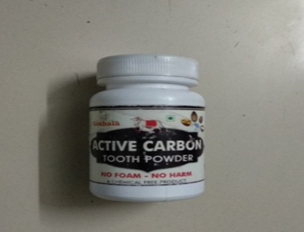Abstract
There has been an indiscriminate use of commercial antimicrobials in the previous decades, leading to emergence of multidrug resistant bacteria. This has become a frequent occurrence, so natural antimicrobial agents have grabbed attention of researchers as potential alternatives. Of particular interest is cow dung which has been shown to have antibacterial and antiseptic properties. It is known to be used predominantly in rural areas. This paper aims to evaluate the antibacterial activity of Goshala Activated Carbon toothpowder against three strains of periodontopathogennic and cariogenic bacteria. Standardized strains of Streptococcus mutans, Aggregatibacter actinomycetemcomitans and Porphyromonas gingivalis were cultured in BHI (Brain Heart Infusion Broth) media and Minimum Inhibitory Concentration (MIC) of Activated Carbon tooth powder was assessed by serial dilution method. Likewise, Amoxicillin, Metronidazole and Chlorhexidine were tested against the same pathogens. Porphyromonas gingivalis, Streptococcus mutans and Aggregatibacter actinomycetemcomitans were shown to be sensitive at an MIC of 50mg/ml, 25mg/ml and 0.8mg/ml for activated carbon toothpowder respectively. Given some limitations of this study, we can conclude that activated carbon powder presents a ray of hope in developing a targeted agent for aggressive periodontitis patients.
Full text article
Authors

This work is licensed under a Creative Commons Attribution-NonCommercial-NoDerivatives 4.0 International License.

